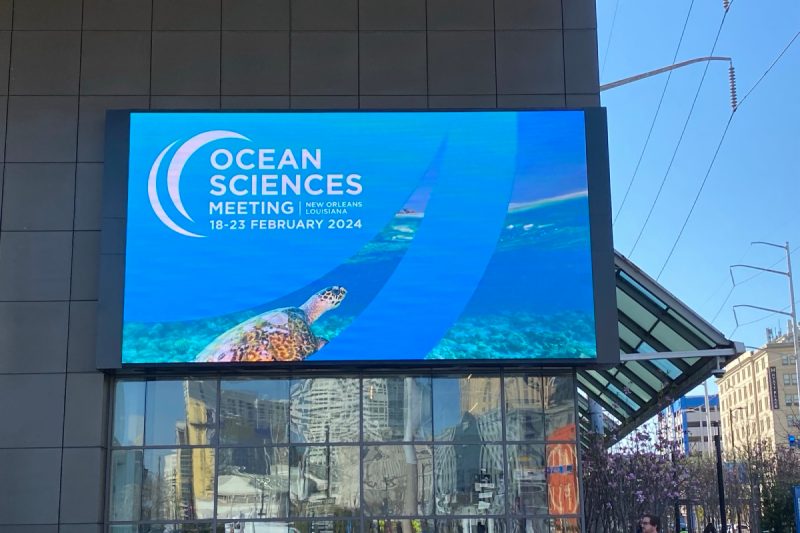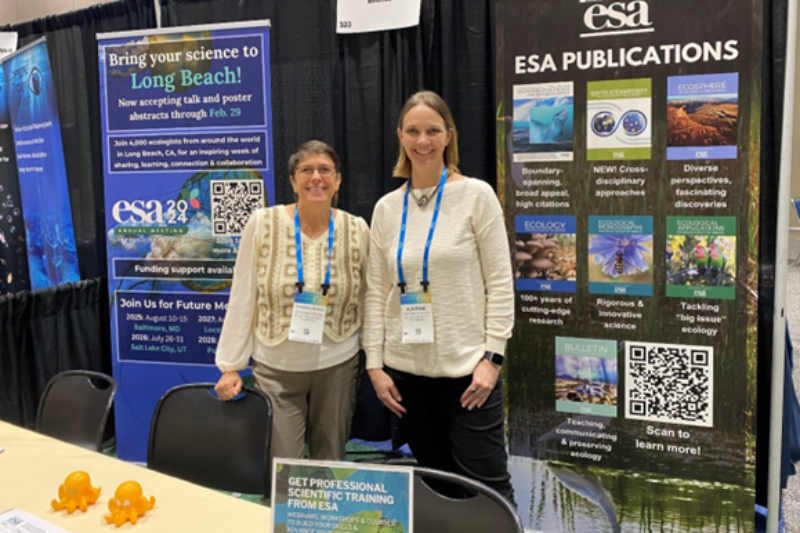Ecology Doesn’t Stop at the Coast: ESA at the Ocean Sciences Meeting
By Adrienne Sponberg
ESA recently joined more than 6,000 ocean scientists from around the world at the bi-annual Ocean Sciences Meeting (OSM) in New Orleans. OSM is a joint meeting between the American Geophysical Union, Association for the Sciences of Limnology and Oceanography and the Oceanography Society.

Over 6,000 ocean scientists from around the world gathered New Orleans from February 18 – 23 for the Ocean Sciences Meeting. Photo credit: Catherine O’Riordan
Executive Director Catherine O’Riordan and Director of Society Programs Adrienne Sponberg staffed the ESA booth at the exhibit hall. ESA’s presence at OSM was timely as the ESA Council had just approved the formation of a new section for coastal and marine ecology. Many OSM attendees stopped by the booth, with unanimous enthusiasm about the new section. Several ESA members who visited the booth noted that they often felt like marine ecology was not well-represented in the Society. As we told them, let’s change that! We hope that the formation of the new section will make coastal and marine scientists feel more welcome at ESA and provide a forum for organization of special sessions or other events at the ESA Annual Meeting. Both the 2024 and 2025 meetings are in coastal locations, so the time is right!

O’Riordan (left) and Sponberg (right) shared information about ESA with OSM attendees at our exhibit throughout the week. Sponberg also participated as a panelist for the Career Center event “How to get involved in Society Leadership”.
OSM also provided a great opportunity to promote the ESA family of journals, including ESA’s newest fully open-access journal, Earth Stewardship. With a focus on social-environmental challenges of the Anthropocene, Earth Stewardship will offer a novel and much-needed transdisciplinary platform to tackle these challenges at multiple scales. With nearly 40% of Americans already in residence and the highest rate of population change on our coasts, marine and coastal ecology has a lot to contribute to the broader understanding of the socio-ecological challenges.